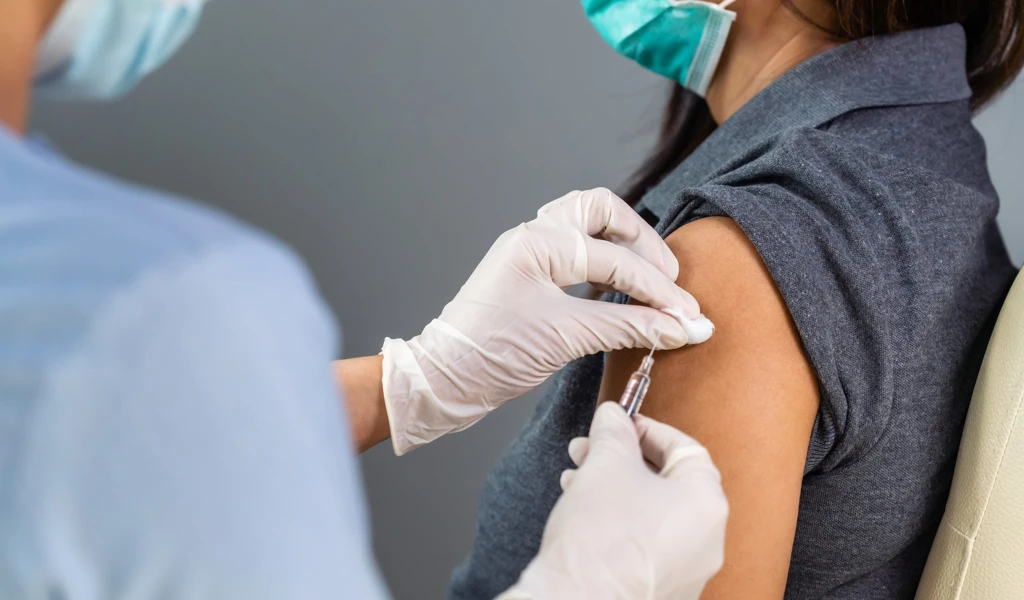CEPI announces first funding awards in quest to develop ‘variant-proof' COVID-19 vaccines

OSLO, Norway, 4 November 2021: CEPI, the Coalition for Epidemic Preparedness Innovations, today announced the first funding awards under its $200m programme to advance the development of vaccines that provide broad protection against SARS-CoV-2 variants and other betacoronaviruses [1]. CEPI will support researchers at two institutions, MigVax Ltd, Israel, and the University of Saskatchewan's (USask) Vaccine and Infectious Disease Organization (VIDO), Canada, as they seek to establish preclinical proof of concept for novel vaccines suitable for use in low-and middle-income countries that are broadly protective against COVID-19 variants.
Under the first awards made in response to a Call for Proposals issued in March 2021:
- CEPI will provide funding of US$4.3m to MigVax Ltd to support the initial development of a new orally administered subunit vaccine tablet.
-CEPI will provide funding of US$5m to the University of Saskatchewan's Vaccine and Infectious Disease Organization to support the initial development of a new vaccine based on VIDO's novel protein subunit technology.
Both projects aim to establish preclinical proof of concept for ‘variant-proof' vaccines that protect against new COVID-19 variants of concern. The vaccine platforms may also be applicable for developing vaccines which are protective against a broad range of betacoronaviruses, as well as other pathogens in the CEPI portfolio, including ‘Disease X' - unknown pathogens with pandemic potential that have yet to emerge. CEPI's investments in MigVax Ltd and USask's VIDO will fund antigen and candidate selection, vaccine formulation, manufacturing process development, and preclinical testing against SARS-CoV-2 variants of concern.
CEPI is committed to the principle of equitable access to the vaccines it funds. Under the terms of the funding agreements, MigVax Ltd and USask's VIDO have committed to achieving equitable access to the outputs of these projects, in line with CEPI's Equitable Access Policy.
CEPI's partnerships with MigVax Ltd and the University of Saskatchewan's Vaccine and Infectious Disease Organization are kicking off our ambitious programme to develop variant-proof COVID-19 vaccines, and ultimately vaccines that are broadly protective against other coronaviruses such as SARS and MERS.
In countries with sufficient access to them, vaccines are now breaking the link between COVID-19 infection and severe illness or death, and enabling life to return to something approaching normality. But the threat of new variants emerging which can evade the protection of our current vaccines and set the global response back to square one continues to hang over us all. That's why developing globally accessible vaccines which are broadly protective against COVID-19 variants is imperative for global health security: through these new partnerships we are taking the first steps towards achieving that goal.
We are honored to receive this prestigious grant and to enter into CEPI's visionary programme for accelerating the development of critical vaccines that are accessible to all. We are gratified that CEPI shares our conviction that a subunit oral vaccine tablet could help the world return to a ‘new normal' in the ‘day-after-the-pandemic' reality. In fact, twenty months into the Covid crisis, it is clearer than ever that the struggle to keep the disease under control will be nearly as challenging as getting it under control to begin with. Oral boosters such as our MigVax-101 which could protect against emerging COVID-19 variants will help health organizations transition from panic mode to routine, reducing the cost and expanding the reach of their vaccination programs. We will take full advantage of this grant to bring it to market faster and explore the potential use of our vaccine platform against other coronaviruses.
VIDO is excited to be working with CEPI to establish a platform for the rapid development of vaccines for coronaviruses and other emerging diseases – especially for those in low- and middle-income countries. This is part of our commitment to advancing technologies that enables us to be better prepared for the next disease.
Strengthening our defenses against COVID-19
While the world has made great advances in vaccine development against COVID-19, variants of concern will continue to pose a threat to this progress as long as the virus continues to circulate. Vaccines have dramatically altered the nature of the response to COVID-19 in countries that have access to them, but emerging variants that are more transmissible, more deadly, or can evade the protection provided by current vaccines could create significant setbacks to the way the world manages the virus. Developing novel vaccines that target combinations of key mutations of the SARS-CoV-2 virus and have the potential to generate immunity against all of them is therefore essential for the long-term control of the virus.
Through COVID-19, coronaviruses have now demonstrated their devastating pandemic potential. The emergence of a coronavirus combining the transmissibility of COVID-19 with the lethality of SARS or MERS would be catastrophic, so developing vaccines that provide broad protection against the whole betacoronavirus genus is therefore vital to our global health security. CEPI is working closely with partners to advance work in this area as quickly as possible.
The awards announced today have been issued in response to a CEPI Call for Proposals issued in March 2021, and additional awards are expected to be announced shortly. The programme forms part of CEPI's next 5-year plan, published in March, which aims to reduce or even eliminate the future risk of pandemics and epidemics.
[1] Betacoronaviruses are types of coronavirus that cause Severe Acute Respiratory Syndrome (SARS) and Middle East Respiratory Syndrome (MERS), which have been responsible for major epidemics in Asia and the Middle East in recent years, and also SARS-CoV-2, the virus responsible for the ongoing COVID-19 pandemic
ENDS
About CEPI
CEPI is an innovative partnership between public, private, philanthropic, and civil organisations, launched at Davos in 2017, to develop vaccines against future epidemics. Prior to COVID-19, CEPI's work focused on developing vaccines against the Ebola Virus Disease, Lassa virus, Middle East Respiratory Syndrome coronavirus, Nipah virus, Rift Valley Fever virus and Chikungunya virus. It has over 20 vaccine candidates against these pathogens in development. CEPI has also invested in new platform technologies for rapid vaccine development against unknown pathogens (Disease X).
During the current pandemic, CEPI initiated multiple programmes to develop vaccines against SARS-CoV-2 and its variants with a focus on speed, scale and access. These programmes leverage the rapid response platforms developed by CEPI's partners prior to the emergence of COVID-19, as well as new collaborations. The aim is to advance clinical development of a diverse portfolio of safe and effective COVID-19 candidates and to enable fair allocation of these vaccines worldwide through COVAX.
CEPI's 5-year plan lays out a $3.5 billion roadmap to compress vaccine development timelines to 100 days, develop a broadly protective vaccine against COVID-19 and other Betacoronaviruses, and create a "library" of vaccine candidates for use against known and unknown pathogens. The plan is available at https://endpandemics.cepi.net.
Follow our news page for the latest updates. Follow us via @CEPIvaccines, @DrRHatchett, and on LinkedIn.
About Migvax Ltd
MigVax, an affiliate of The Migal Galilee Research Institute, is a startup developing MigVax-101, a novel oral subunit COVID-19 vaccine that has demonstrated effectivity in pre-clinical tests as an oral booster after priming injected vaccine. Established in 2020 via a leading investment from OurCrowd, the crowdfunding venture investment platform, MigVax set out to modify a well-established coronavirus vaccine developed by Migal for the immunization of poultry, and to use its advanced methodologies to create its innovative oral subunit vaccine for the immunization of humans.
MigVax-101 utilizes a chimeric protein to generate an immune response in the oral mucosa, which then generates consensual mucosal immunization. This is in addition to the generation of neutralizing antibodies, which confer a humoral immune response similar to injected vaccines. MigVax-101 epitopes were designed using computational chemistry of immunogenic epitopes in IBV, MERS, SARS-COV and SARS-COV-2, focusing on neutralizing antibodies and promoting an immune response.
For more information, please see www.migvax.com and https://www.migvax.com/copy-of-the-science
About University of Saskatchewan's Vaccine and Infectious Disease Organization
The University of Saskatchewan's Vaccine and Infectious Disease Organization (VIDO) is internationally recognized for its role in vaccine development and is one of Canada's national science facilities. VIDO has a 45-year history of vaccine development and commercialization—eight of its vaccines have been sold commercially, and six have been described as world-firsts. The >160-member organization operates using an ISO:9001 certified management system in state-of-the-art containment level 2 and 3 facilities. VIDO receives operating support from the Canada Foundation for Innovation Major Science Initiatives fund and the Government of Saskatchewan through Innovation Saskatchewan and the Ministry of Agriculture. Visit www.vido.org


